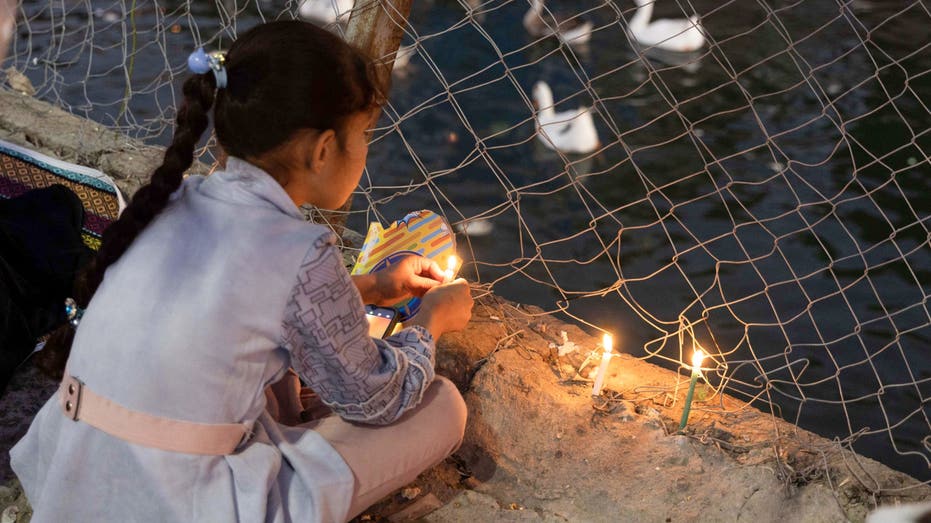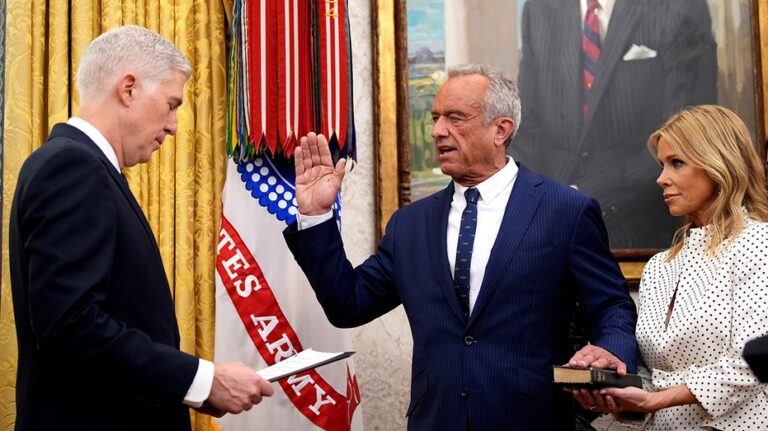
The law is going to a second vote by the country’s government, but it has opposition from youth activist groups and from 215 women parliamentary members.
Young girls in Iraq who are years away from becoming teenagers could be forced to become wives if a new Shia-backed law passes. The new law would lower a girl’s consent from 18 to age 9.
This includes allowing parents to have arranged marriages for their young daughters.
Iraq doesn’t have a male guardianship system that requires a female to have the permission of a husband, father or other male guardian to make crucial life decisions — like marriage. The law would also allow religious authorities to carry out marriages.
The proposed law that’s on its second way through the parliamentary government has been opposed by women in the members of parliament (MP) and activist groups, according to the Guardian.
PENTAGON PLANS TO SHRINK US ‘FOOTPRINT’ IN IRAQ, BUT DECLINES TO SAY BY HOW MUCH
“This is a catastrophe for women,” said Raya Faiq, the coordinator for a coalition of groups opposing the law change, which also includes some Iraqi MPs.
“My husband and my family oppose child marriage. But imagine if my daughter gets married and my daughter’s husband wants to marry off my granddaughter as a child. The new law would allow him to do so. I would not be allowed to object. This law legalizes child rape.”
The new law would bring back a Taliban-style of slashing women’s rights.
Iraqi citizens have protested on the streets of the country’s capital, Baghdad, and other cities around the country. The protests have been met with clashes against local law enforcement.
Although marriage under the age of 18 has been a national law since the 1950s, a survey by Unicef found that 28% of girls in Iraq got married before they turned 18.
SENATE PASSES BILL TO PROTECT KIDS ONLINE AND MAKE TECH COMPANIES ACCOUNTABLE FOR HARMFUL CONTENT
Nadia Mahmood, co-founder of the Iraq-based Aman Women’s Alliance, said the male-dominated MP in Iraq feels threatened by a movement of youth organizations and women.
“Following the mass youth protests which took place in Iraq in 2019, these political players saw that the role of women had begun to strengthen in society,” said, according to a report by the Guardian. “They felt that feminist, gender and women’s organizations, plus civil society and activist movements, posed a threat to their power and status … [and] began to restrict and suppress them.”
There have been 25 female members of Iraq’s government who tried stopping the proposed law from going to a second vote, but they say the strong opposition by their male MP colleagues has made it nearly impossible.
“Unfortunately, male MPs who support this law speak in a masculine way, asking what’s wrong with marrying a minor? Their thinking is narrow-minded. They don’t take into consideration that they are the legislators that determine people’s fate … but rather follow their masculine thinking to authorize all this,” said Alia Nassif, an Iraqi MP.
Protesters fear that their children could face an even harsher future than their own if the law changes are adopted.
“I have one daughter, I don’t want her to be forced like me to marry as a child,” said Azhar Jassim, who had to leave school to be married at 16.


